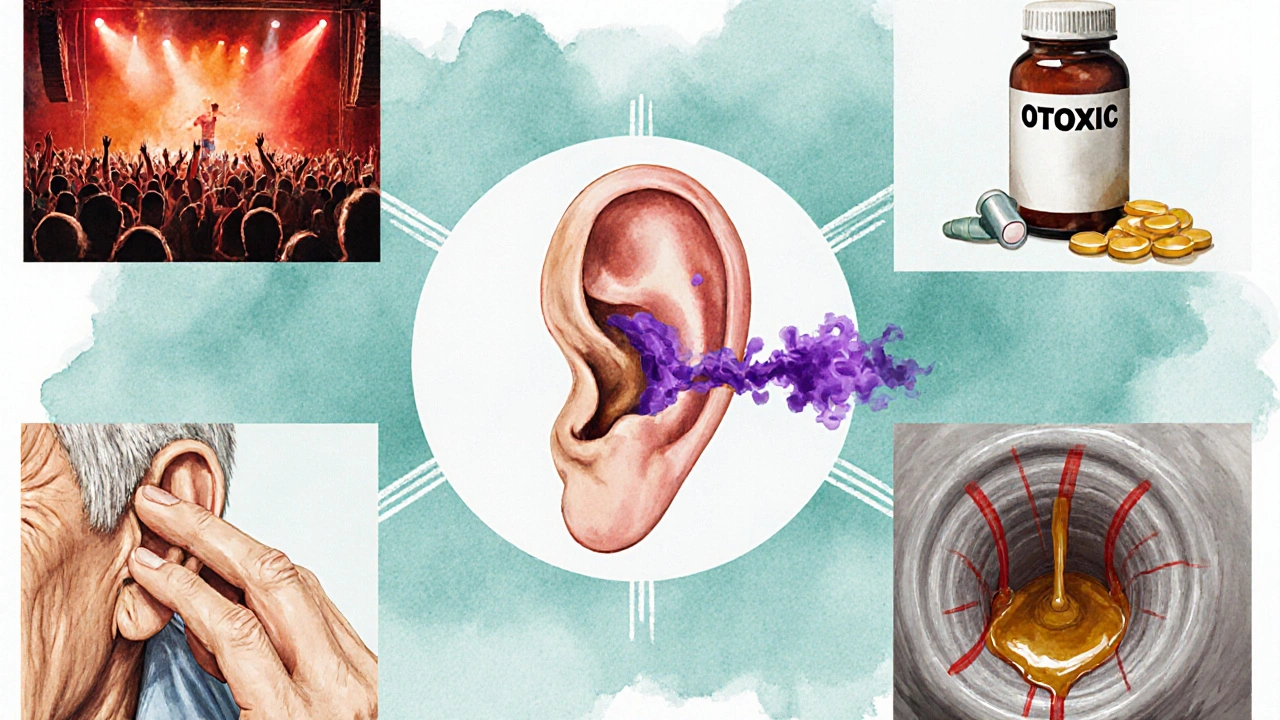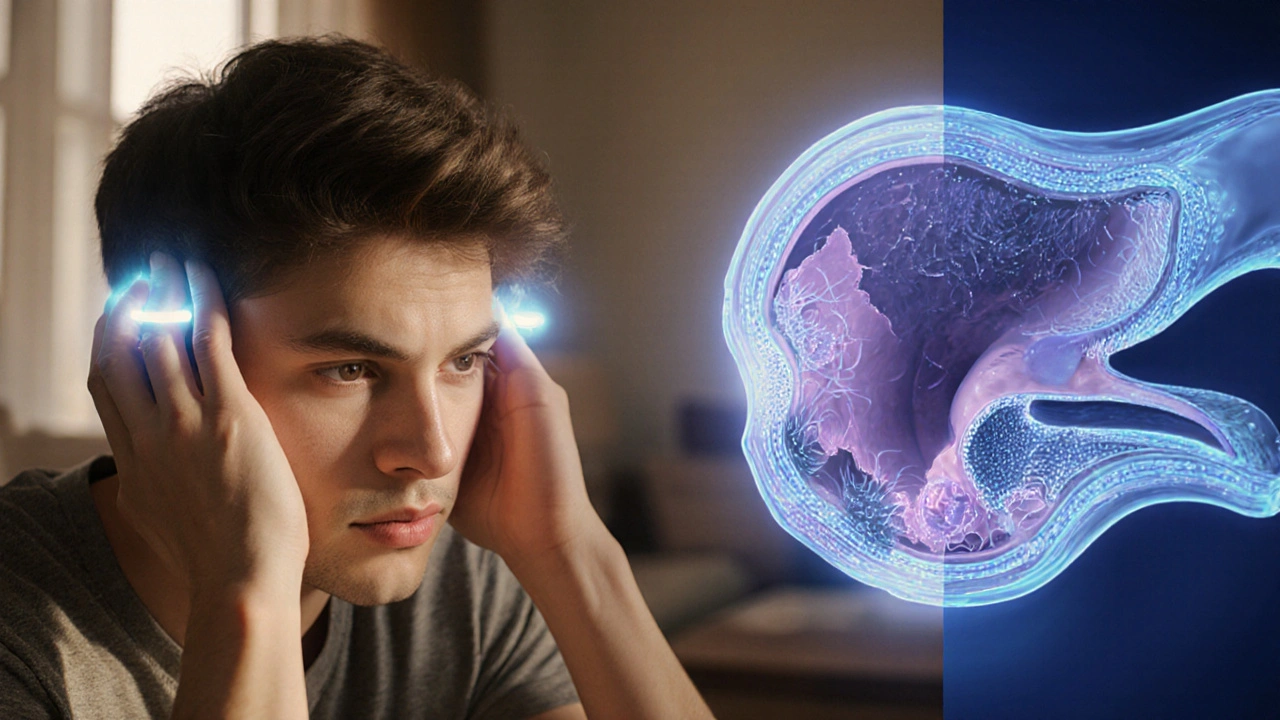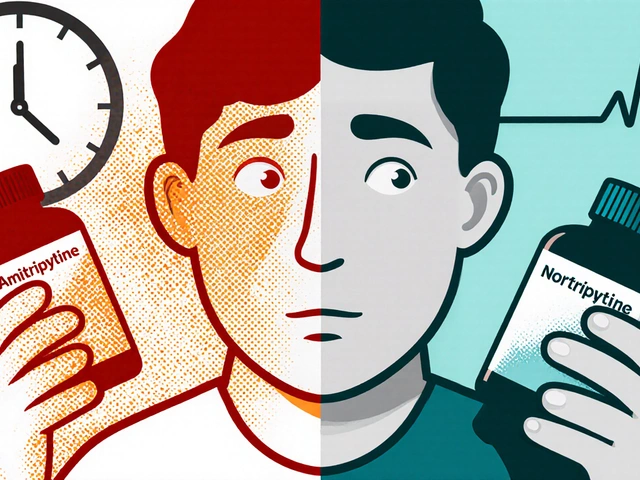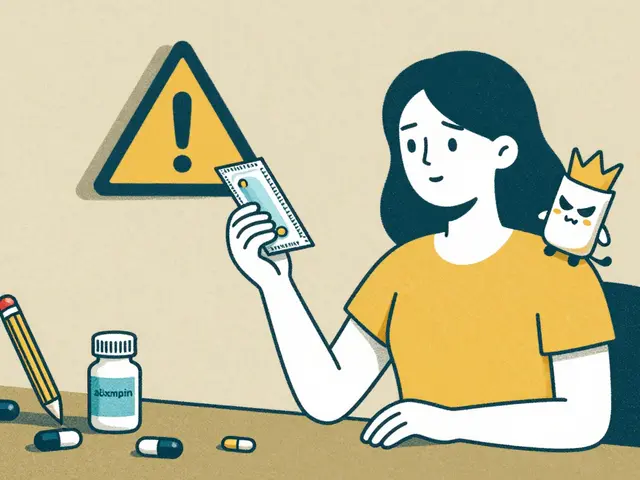Tinnitus & Hearing Loss: Understanding the Connection
This interactive explores the connection between tinnitus (ringing in the ears) and hearing loss. Both conditions often stem from damage to the hair cells in the cochlea.
Tinnitus
Perception of sound without an external source. Often described as ringing, buzzing, or hissing.
Hearing Loss
Reduced ability to detect tones, speech, or environmental sounds.
Shared Causes
| Cause | Effect on Tinnitus | Effect on Hearing Loss |
|---|---|---|
| Noise-induced damage | Hair-cell trauma creates abnormal neural firing, perceived as ringing. | Fewer functional hair cells mean reduced sensitivity to sound. |
| Ototoxic medications | Drug-induced cellular stress triggers phantom sounds. | Cell death reduces the ear’s ability to translate vibrations. |
| Age-related degeneration | Degenerated pathways fire irregularly, creating a constant hum. | Overall drop in auditory acuity, especially high frequencies. |
| Earwax blockage | Pressure changes alter middle-ear dynamics, producing buzzing. | Sound waves are dampened, making speech harder to understand. |
| Cardiovascular issues | Blood turbulence creates rhythmic ringing. | Reduced blood supply to the cochlea can starve hair cells, leading to loss. |
How Hair Cells Link the Conditions
When hair cells in the cochlea die, the brain loses the regular input it expects. The auditory cortex then "fills in" the silence with spontaneous activity—this is the classic explanation for tinnitus. At the same time, fewer hair cells mean fewer channels for sound, which is precisely what hearing loss measures.
Prevention Tips
- Wear earplugs or noise-cancelling headphones at concerts, construction sites, or when using power tools.
- Keep personal audio volume below 60% of maximum; follow the 60/60 rule (60% volume for no more than 60 minutes at a time).
- Stay hydrated and maintain a healthy blood pressure—both support cochlear health.
- Ask your pharmacist about potential ototoxic side effects when starting new meds.
- Schedule regular hearing screenings after age 30, especially if you work in noisy environments.
If you notice a new ringing sound or find yourself asking people to repeat themselves, schedule an appointment with an audiologist.
Ever wonder why a ringing in your ears often comes hand‑in‑hand with trouble hearing? It’s not a coincidence. tinnitus and hearing loss share many of the same culprits, and the way our auditory system reacts can turn one problem into the other.
Key Takeaways
- Tinnitus is the perception of sound without an outside source.
- Hearing loss means the ear can’t detect sounds as clearly as it should.
- Both conditions often stem from damage to the hair cells in the cochlea.
- Noise exposure, certain meds, and age are the top overlapping causes.
- Seeing an audiologist early can prevent a small issue from becoming a chronic one.
What Is Tinnitus?
When most people hear the word Tinnitus is the perception of sound-often ringing, buzzing, or hissing-without an external source, they assume it’s just a harmless nuisance. In reality, chronic tinnitus can be a sign that the auditory pathway is struggling.
What Is Hearing Loss?
Hearing loss is a reduced ability to detect tones, speech, or environmental sounds. It ranges from mild (trouble hearing soft whispers) to profound (almost complete deafness). The two conditions often overlap, but they aren’t identical.

How the Ear Works: The Role of the Cochlea
The Cochlea is a spiral‑shaped, fluid‑filled organ inside the inner ear that converts sound vibrations into electrical signals. Tiny hair cells line the cochlear duct; when they bend, they fire the auditory nerve is the bundle of fibers that carries those electrical signals to the brain. Damage to the hair cells or the nerve disrupts this chain, leading to both tinnitus and hearing difficulty.
Shared Causes of Tinnitus and Hearing Loss
| Cause | How it Leads to Tinnitus | How it Leads to Hearing Loss |
|---|---|---|
| Noise‑induced damage is exposure to loud sounds that stress or destroy hair cells | Hair‑cell trauma creates abnormal neural firing, perceived as ringing. | Fewer functional hair cells mean reduced sensitivity to sound. |
| Ototoxic medications is drugs that can harm inner‑ear structures (e.g., certain antibiotics, chemotherapy, high‑dose NSAIDs) | Drug‑induced cellular stress triggers phantom sounds. | Cell death reduces the ear’s ability to translate vibrations. |
| Age‑related degeneration is the gradual loss of hair cells and nerve fibers over time, known as presbycusis | Degenerated pathways fire irregularly, creating a constant hum. | Overall drop in auditory acuity, especially high frequencies. |
| Earwax blockage is excess cerumen that can press against the eardrum and middle‑ear bones | Pressure changes alter middle‑ear dynamics, producing buzzing. | Sound waves are dampened, making speech harder to understand. |
| Cardiovascular issues is high blood pressure or turbulent blood flow that can be heard as pulsatile tinnitus | Blood turbulence creates rhythmic ringing. | Reduced blood supply to the cochlea can starve hair cells, leading to loss. |
Why Damage to Hair Cells Links the Two Conditions
When hair cells in the cochlea die, the brain loses the regular input it expects. The auditory cortex then "fills in" the silence with spontaneous activity-this is the classic explanation for tinnitus. At the same time, fewer hair cells mean fewer channels for sound, which is precisely what hearing loss measures.

When to See an Audiologist
If you notice a new ringing sound or find yourself asking people to repeat themselves, schedule an appointment with an audiologist is a hearing‑care professional trained to diagnose and treat ear‑related conditions. They’ll perform an audiogram is a graph that plots hearing sensitivity across frequencies and may run tinnitus matching tests to pinpoint the pitch and volume of the phantom sound.
Managing Both Tinnitus and Hearing Loss
- Sound therapy: Low‑level background noise (white noise machines, fans) can mask tinnitus and train the brain to ignore it.
- Hearing aids: Modern devices amplify missing frequencies, which often reduces the perceived loudness of tinnitus.
- Cognitive‑behavioral therapy (CBT): Changing the emotional response to ringing lessens its impact.
- Medical review: Ask your doctor to check for ototoxic drug alternatives or treat underlying vascular issues.
Prevention Tips Anyone Can Use
- Wear earplugs or noise‑cancelling headphones at concerts, construction sites, or when using power tools.
- Keep personal audio volume below 60% of maximum; follow the 60/60 rule (60% volume for no more than 60minutes at a time).
- Stay hydrated and maintain a healthy blood pressure-both support cochlear health.
- Ask your pharmacist about potential ototoxic side effects when starting new meds.
- Schedule regular hearing screenings after age 30, especially if you work in noisy environments.
Frequently Asked Questions
Can tinnitus occur without any hearing loss?
Yes. Some people experience intermittent ringing while their audiogram shows normal thresholds. This can happen with stress, medication, or inner‑ear fluid changes.
Does treating hearing loss improve tinnitus?
Often. Amplifying missing frequencies reduces the brain’s need to generate phantom sounds, so many patients notice a quieter ringing after getting hearing aids.
Are there any home remedies that work?
Gentle background noise, stress‑reduction techniques (meditation, yoga), and avoiding caffeine or nicotine can lower the perceived intensity of tinnitus for many people.
What tests does an audiologist use to differentiate the two?
An audiogram measures hearing thresholds, while a tinnitus matching test records the pitch and loudness of the ringing. Together they reveal whether the conditions co‑exist or one masks the other.
Is tinnitus ever a sign of something serious?
Sudden, one‑sided tinnitus could indicate a tumor on the auditory nerve (acoustic neuroma) or a vascular abnormality. Persistent, new-onset ringing warrants a medical evaluation.








13 comments
Anna Zawierucha
Oh great, another deep dive into why my ears love to haunt me-fun fact: the same noisy concerts that make me a rockstar also love to turn my head into a personal rave. Who needs peace and quiet when you can have a built‑in soundtrack? The cochlea's hair cells are basically drama queens, throwing a tantrum at the slightest decibel. Guess we should all start whispering to our ears, right?
Mary Akerstrom
Thanks for sharing this info it really helps people who feel alone with that constant ringing. Knowing that there are simple steps like earplugs and checking meds can make a big difference. I hope more folks read this and get the support they need.
Delilah Allen
But consider, Mary, the very *silence* you champion is a construct-our brains *invent* sound when deprived of input!; the neural chatter doesn't simply stop because we wear plugs; it *rebels*!!; thus, the philosophical truth is that tinnitus is a reminder of consciousness itself-an unavoidable echo of existence!!!
Nancy Lee Bush
Super useful tips! 😃 I always forget to follow the 60/60 rule, so that reminder is gold. Adding a white‑noise fan at night can really mask the buzz-totally a game changer. Keep the good vibes coming! 👍
Dan Worona
What they don't tell you is that the big pharma giants intentionally push ototoxic drugs to keep us dependent on their "miracle" supplements. Meanwhile, hidden microphones in urban noise-canceling devices feed back the frequencies that cause hair‑cell damage. Wake up, folks-your ringing might be a signal they want you to hear.
Chuck Bradshaw
Actually, Dan, the scientific literature shows no credible evidence linking commercial earplugs to covert signaling. Ototoxicity is well‑documented with specific drug classes, but it's a matter of dosage, not a grand scheme. If you’re worried, just stick to FDA‑approved medications and reputable hearing protection.
Howard Mcintosh
Yo, don’t let that ringin' be a excuse to quit rockin'! Stay safe, use earplugs and keep the beats comin'-you got this!
Jeremy Laporte
Hey everyone, just wanted to say that taking those simple steps can really make a huge difference in how we feel day‑to‑day. It's all about being kind to our ears and listening to our bodies. Keep supporting each other, y'all!
Andy Lombardozzi
Understanding the relationship between tinnitus and hearing loss begins with the anatomy of the cochlea, which contains rows of delicate hair cells that convert mechanical vibrations into neural signals. When these hair cells are damaged by excessive noise exposure, the resulting loss of auditory input forces the central auditory system to compensate, often generating spontaneous activity perceived as tinnitus. This phenomenon, known as maladaptive neuroplasticity, illustrates why the two conditions frequently co‑occur. Epidemiological studies have shown that individuals with measurable hearing loss are up to three times more likely to report chronic tinnitus. Moreover, the frequency of the perceived ringing often matches the region of hearing loss on the audiogram, supporting the notion of a shared pathophysiology. Ototoxic medications, such as certain aminoglycoside antibiotics, further exemplify this link by inducing both hair‑cell apoptosis and aberrant firing patterns in auditory nerve fibers. Age‑related degeneration, or presbycusis, contributes additional complexity by gradually reducing hair‑cell populations while simultaneously altering central auditory processing. Cardiovascular health also plays a role; reduced cochlear blood flow can exacerbate hair‑cell vulnerability, leading to both sensory deficits and pulsatile tinnitus. Clinically, comprehensive assessment should include pure‑tone audiometry, speech‑in‑noise testing, and tinnitus matching procedures to map the precise audiological profile. Treatment strategies that address both conditions often involve hearing amplification, which can mask tinnitus and restore auditory input, reducing cortical hyperactivity. Sound therapy, such as low‑level white noise, serves as an adjunct by providing external auditory stimuli that compete with phantom sounds. Cognitive‑behavioral therapy has demonstrated efficacy in reducing the emotional distress associated with tinnitus, highlighting the importance of a multidisciplinary approach. Lifestyle modifications, including limiting exposure to loud environments, maintaining optimal blood pressure, and avoiding excessive caffeine, can mitigate progression. Early intervention is crucial because prolonged auditory deprivation may lead to irreversible changes in cortical representation. Ultimately, recognizing the intertwined nature of tinnitus and hearing loss empowers patients and clinicians to implement preventive measures and targeted therapies that improve quality of life.
Joshua Ardoin
Whoa, this post is like a treasure map for our ears! 🌟 From rocking out at concerts to sipping coffee, every habit shows up in the chart. Remember: earplugs are the real MVPs and staying hydrated keeps those tiny hair cells happy. Let’s spread the word and keep the vibe chill for everyone’s hearing! 🎧💙
Glenn Gould
Just wear earplugs, folks.
Poonam Sharma
Behold! The auditory apocalypse descends as the insidious onslaught of decibel‑deluge and pharmacological saboteurs wreak havoc on the sacred cochlear citadel. This cataclysmic cascade, riddled with ototoxic malignancies, heralds an era where the populace is shackled to a perpetual symphony of dysphonia. Only through vehement advocacy of auditory sovereignty can we hope to reverse this dystopian sonorous tyranny!
Meigan Chiu
While most readers will nod along with the conventional advice-wear earplugs, limit volume-I must point out that the evidence for the 60/60 rule is, frankly, anecdotal at best. Some studies even suggest that short bursts of high‑intensity sound can stimulate protective pathways in the inner ear. Furthermore, the notion that “all tinnitus is linked to hearing loss” ignores the subset of patients who experience transient ringing after stress or hormonal fluctuations. So before you accept the mainstream narrative, consider the nuances and the data that challenge it.